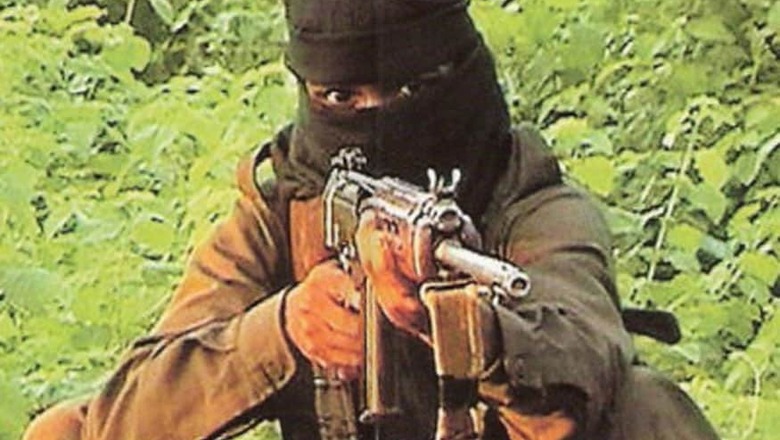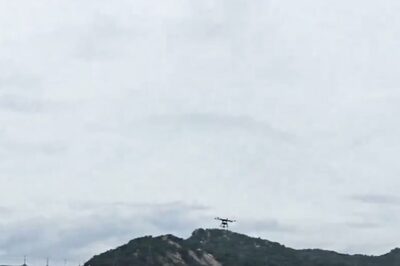
views
With a blindfold on and hands tied behind his back, Santosh Kattam was made to walk through the jungles of Bijapur for six days. At any moment, the police constable expected his abductors — a group of Naxals — to rain lathis on him and finish him off just like they had done to many security personnel, government officials, alleged informers and journalists before him.
On the morning of May 11, a Jan Adaalat — a kangaroo court in which Naxals decide the fate of their captives — was held for him, in the jungles of Bijapur's Gangaloor village. Present at the spot, apart from the armed Naxals and over 1,500 local villagers, were Santosh's wife and daughter, and three local journalists. The journalists hadn't come to report the news. After learning about Santosh's abduction, his wife and children had approached local reporters for help. Many journalists, risking their own lives, had spread across the jungles of Bastar, looking for Santosh. These three had succeeded in establishing contact with the Naxals and pleading for his release.
After two hours of the Jan Adaalat, which started at 8 in the morning, the Naxals let the villagers decide the fate of Santosh. The villagers wanted his life to be spared. The Naxal commanders held a meeting and decided to let him walk free, on the condition that he resign from his job at the police force. It was an uncommon rescue operation that did not make it to the front pages of newspapers or television prime-time shows. And it was not the first time that Bastar's journalists had put their lives in danger for the safety of people taken hostage by Naxals.
Santosh Kattam was posted as an electrician at Bhopalpatnam. After taking leave from office, he had come to Bijapur to spend time with his family — wife and three daughters. On May 4 he went to see a festival that is held every year in Gorna, Bijapur. In the evening, after visiting a temple, Santosh was waiting for a friend when a group of people approached him. They frisked him and, on finding his police identification, took him away as their hostage.
On May 7, Santosh's wife approached local journalists, pleading her husband's case. The media persons split themselves into several teams. Some left for jungles near Maharashtra, others for forests near the Andhra Pradesh border. It was the team of three reporters headed by Ganesh Mishra, a local journalist, that was able to establish contact with the group of Naxals which had abducted Santosh Kattam.
"We had spent three days looking for him. Then on May 10 we got a call informing us that a Jan Adaalat was being held at a certain place to decide Santosh's fate. If we wished, the caller said, we could be present there and bring Santosh's family members as well," Ganesh Mishra said.
Ganesh and his colleagues, Ranjan Das and Chetan Khaparwar, travelled 40 kilometres to reach the spot. "They grilled him for two hours. At the end of this, they asked the local villagers whether Santosh should be spared or killed. The villagers unanimously voted for him to be spared. He was let go. We brought him to the local deputy superintendent of police," said Ganesh.
"I didn't believe I would make it," said Santosh. "All the time I was with them, I expected them to beat me to death or shoot me at any time. Although I was never beaten or abused, I knew they spared very few people," he added. From the evening of May 4 till the morning of May 11 he was made to walk over so many hills and jungles with a blindfold on, says Santosh, that he had absolutely no idea how far from home he had come.
"They did not take a break in any village. Every night we spent in the jungles. For food I was given birds and dried fish. Even when Naxal commanders interrogated me they did not take the blindfold off," Santosh said. According to inspector general (IG) of Bastar range, P Sundarraj, "We don't think Santosh was in the cross hairs of the Naxals. He is right now with us. We are talking to him and finding out the details of his abduction."
In November 2010, seven policemen including a sub-inspector were abducted in Bastar's Tarlaguda area by Naxals. All the policemen were going home on leave when they were snatched. For 11 days, the Naxals roamed the jungles with their captives, while rumours were floating around of the policemen being murdered. It was after the intervention of two journalists who searched the jungles for seven days that the captives were finally let go.
In April 2012, Sukma collector Alex Paul Menon was abducted by Maoists and released after two weeks of captivity. It is believed that local journalists had a big role to play in establishing a channel of communication between the government and the captors and ensuring the collector's safety.
A local reporter Suresh Mahapatra said, "In Bastar, we're always working on a razor edge. There is the threat of being killed on one side and of being imprisoned on the other. Often there are routine assignments which need us to stake a lot."




















Comments
0 comment